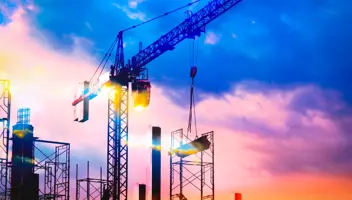NEC4 has issued new amendments in response to changes in the industry.
The NEC4 amendments can be viewed on their website. Here are the some of the key changes:
1. Climate Change
Climate change is high on the agenda of all those working in the construction and engineering industry. In July 2022, NEC introduced a new climate change clause as a standalone secondary option clause. This clause is now incorporated into each contract as an integrated secondary option clause.
Climate change requirements can now be included in the scope with a requirement for contractors to put forward a plan on about how these will be achieved. It also requires suppliers to set out their strategy to meet the requirements. The option also introduces the possibility of a performance table which has possible financial incentives attached, to encourage stated performance targets to be achieved.
2. Design liability limited to reasonable skill and care
Another significant amendment is that the Engineering and Construction Short Contract (ECSC) and the Engineering and Construction Short Sub-Contract (ECSS) now include optional clauses to limit liability for design to exercising “reasonable skill and care”. This is the standard usually used by design professionals and a requirement to maintain professional indemnity insurance. This is a sensible amendment which clearly reflects feedback from the industry.
3. Limit of liability
To align the short contract with the main contracts, an option is now provided for the client to include a total limit on liability. Again, this shows that the NEC drafters are taking on and reflecting feedback from the industry.
4. Working from home
Since COVID-19 lockdowns there are more people working from home or other locations. The amendments address this by amending the Schedule of Cost Components (“SCC”) to bring Defined Cost in line with these modern working practices, with an option in the contract data for users to note whose costs will be recoverable as part of defined cost even when working from home or other locations.
5. Adjudication
The dispute resolution option W2 has been amended. The amendment clarifies that the adjudicator determines the procedure and timetable for the adjudication. In particular, the requirement for parties to submit all information to be considered by the adjudicator within 14 days of the referral has been removed. This is a welcome step which will reduce the scope for unnecessary procedural and jurisdictional arguments.
Summary
We understand that further amendments are being considered to address the Corporate Insolvency and Governance Act 2020 and the Building Safety Act 2022.
For those who regularly use NEC contracts, it is well worth spending a little time getting to know and understand the latest changes in detail. It is encouraging to see amendments which reflect industry feedback.
If you would like to discuss any of these changes, please do get in touch with us.
Written by
Related News, Insights & Events

Performance security part three: Retentions
The most widely utilised form of performance security, being retentions and some recent measures introduced in the UK to encourage transparency in retention practices in the construction industry.

Building Safety Levy (Scotland) Bill introduced
Introduced on 5 June 2025, the Building Safety Levy (Scotland) Bill proposes a new tax which, if passed, will be known as the Scottish Building Safety Levy ("the Levy").

Burness Paull reinforces energy team with appointment of leading renewables lawyer
03/06/2025
Burness Paull has appointed highly regarded renewables development lawyer Nicola Scott as a partner in its energy team.




